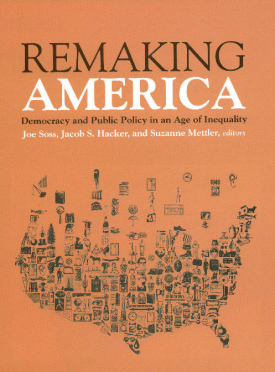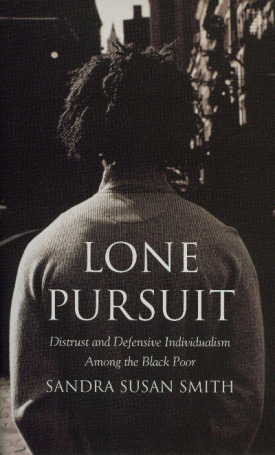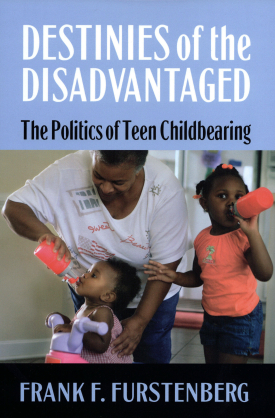
Remaking America
About This Book
Over the past three decades, the contours of American social, economic, and political life have changed dramatically. The post-war patterns of broadly distributed economic growth have given way to stark inequalities of income and wealth, the GOP and its allies have gained power and shifted U.S. politics rightward, and the role of government in the lives of Americans has changed fundamentally. Remaking America explores how these trends are related, investigating the complex interactions of economics, politics, and public policy.
Remaking America explains how the broad restructuring of government policy has both reflected and propelled major shifts in the character of inequality and democracy in the United States. The contributors explore how recent political and policy changes affect not just the social standing of Americans but also the character of democratic citizenship in the United States today. Lawrence Jacobs shows how partisan politics, public opinion, and interest groups have shaped the evolution of Medicare, but also how Medicare itself restructured health politics in America. Kimberly Morgan explains how highly visible tax policies created an opportunity for conservatives to lead a grassroots tax revolt that ultimately eroded of the revenues needed for social-welfare programs. Deborah Stone explores how new policies have redefined participation in the labor force—as opposed to fulfilling family or civic obligations—as the central criterion of citizenship. Frances Fox Piven explains how low-income women remain creative and vital political actors in an era in which welfare programs increasingly subject them to stringent behavioral requirements and monitoring. Joshua Guetzkow and Bruce Western document the rise of mass incarceration in America and illuminate its unhealthy effects on state social-policy efforts and the civic status of African-American men.
For many disadvantaged Americans who used to look to government as a source of opportunity and security, the state has become increasingly paternalistic and punitive. Far from standing alone, their experience reflects a broader set of political victories and policy revolutions that have fundamentally altered American democracy and society. Empirically grounded and theoretically informed, Remaking America connects the dots to provide insight into the remarkable social and political changes of the last three decades.
JOE SOSS is the Cowles Professor for the Study of Public Service at the Hubert H. Humphrey Institute of Public Affairs, University of Minnesota.
JACOB S. HACKER is professor of political science at Yale University and resident fellow of the Institution for Social and Policy Studies.
SUZANNE METTLER is Clinton Rossiter Professor of American Institutions in the Government Department at Cornell University.
CONTRIBUTORS: Andrea Louise Campbell, Richard B. Freeman, Joshua Guetzkow, Jennifer Hochschild, Helen Ingram, Lawrence R. Jacobs, R. Shep Melnick, Kimberly J. Morgan, Frances Fox Pivens, Paul Pierson, Joel Rogers, Sanford F. Schram, Deborah Stone, Vasla Weaver, Bruce Western.




